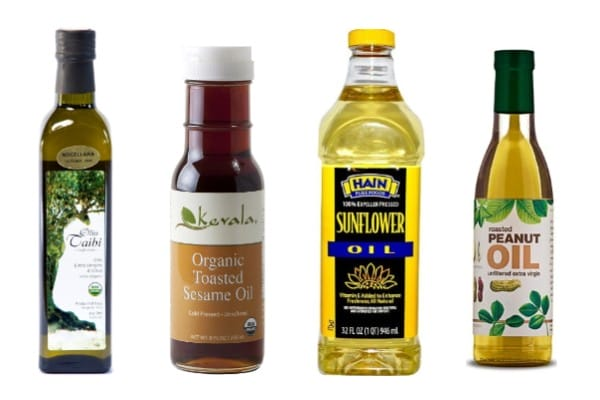Plant-based oils have emerged as powerful allies in promoting better health and longevity, with recent research highlighting their remarkable benefits. Notably, a study conducted by esteemed institutions such as Mass General Brigham and Harvard T.H. Chan School of Public Health found that substituting butter with plant-based oils may lead to a 17% reduction in the risk of premature death. This substantial finding is vital for those considering dietary swaps for health, shedding light on the health benefits of plant oils that can easily replace butter in daily meals. With options like olive, canola, and soybean oils, the impact of oils on health is profound, marking a pivotal change in our dietary preferences. Embracing these oils could not only enhance our culinary experiences but also play a critical role in preventing premature death and chronic diseases.
The discussion surrounding plant-derived fats, often referred to as vegetable oils, has gained traction among health enthusiasts and nutrition experts alike. These oils serve as a smart alternative to traditional animal fats, particularly when it comes to dietary modifications aimed at enhancing well-being. Research has increasingly spotlighted the advantageous effects of these liquid fats, indicating that their inclusion in our meals can vastly improve overall health outcomes. Engaging in simple practices, such as integrating oils from olives or soybeans in place of butter, may yield significant benefits, particularly in reducing mortality associated with chronic illnesses. As we navigate the complexities of healthy eating, it’s essential to recognize how these oils can transform not only our diets but our lives.
The Health Benefits of Plant-Based Oils
Plant-based oils have emerged as a cornerstone of healthy dietary practices, with significant evidence supporting their numerous health benefits. A recent study indicated that replacing butter with plant-based oils can lead to a remarkable 17 percent reduction in the risk of premature death. This shift not only contributes to longer life but also enhances overall wellness by providing essential fatty acids that support heart health and reduce the likelihood of chronic diseases.
Oils derived from sources like olives, soybeans, and canola contain higher levels of unsaturated fats compared to butter, which is high in saturated fats associated with various health risks. The essential nutrients found in plant-based oils can improve cholesterol levels and decrease inflammation, which are pivotal in preventing cardiovascular-related conditions and other chronic illnesses. Thus, incorporating these oils into one’s diet represents a proactive approach to maintaining long-term health.
Frequently Asked Questions
What are the health benefits of plant-based oils compared to butter?
Plant-based oils, such as soybean, canola, and olive oil, are rich in unsaturated fatty acids which can provide significant health benefits. Studies have shown that replacing butter with these oils can reduce the risk of premature death by up to 17%. Plant oils are associated with lower mortality rates from cancer and cardiovascular diseases, promoting a healthier diet and lifestyle.
How can I replace butter with plant-based oils in my diet?
To incorporate plant-based oils into your diet, consider using soybean or olive oil for cooking and baking instead of butter. You can also use these oils for salad dressings and as a substitute in spreads. Simple swaps, like using oil instead of butter on toast or in recipes, can enhance your meals while benefiting your health.
Are there specific dietary swaps for health involving plant-based oils?
Yes, dietary swaps can include substituting butter with plant-based oils like canola or olive oil. Research indicates that such replacements not only enhance flavor but also contribute to long-term health benefits, as they lower the risk of conditions associated with high saturated fat consumption.
Can using plant-based oils prevent premature death?
Yes, increasing the intake of plant-based oils in place of saturated fats, such as butter, has been linked to a lower overall mortality risk. A study found that those who used more plant-based oils showed a 17% reduced risk of premature death, highlighting the importance of dietary choices on longevity.
What impact do plant-based oils have on health in the long run?
Plant-based oils positively impact health by reducing the risk of chronic diseases, including heart disease and certain cancers. Regular consumption of these oils, as opposed to butter, leads to a healthier fat profile in your diet, which can contribute to a longer life and lower mortality rates.
| Key Points |
|---|
| Substituting butter with plant-based oils may reduce premature death risk by 17%. |
| The study involved analyzing data from over 200,000 people over 30 years. |
| Plant-based oils (soybean, canola, olive) associated with lower mortality rates. |
| Butter is linked to higher mortality rates and is rich in saturated fats. |
| A simple swap from butter to oils can yield significant health benefits. |
| The research aims to understand biological mechanisms of health impacts. |
Summary
Plant-based oils are pivotal in promoting health and reducing the risk of premature death. A recent study found that replacing butter with plant-based oils in one’s diet can significantly lower the mortality risk, emphasizing that even small dietary changes can lead to substantial health benefits. By incorporating oils like soybean, canola, and olive oil instead of butter, individuals may not only enhance their longevity but also improve their overall health outcomes.
